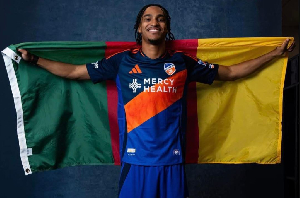The Director of the Limbe Regional Hospital, Dr. Bijingni Kuwoh Pius has decried the sale of blood by blood donors.
He was speaking to The SUN at the end of the just celebrated World Blood Donors Day.
The director says that the free donors’ campaign was an activity to commemorate the world blood donors day for the assistance of the needy.
According to him, blood donation is intended to be something free of charge, but donors in Limbe are requesting for money for exchange of their blood to save patients.
When asked what their objectives were for the celebrations, he said they aimed at receiving 50 pines of blood including creating a blood donor association so that at any time they can call on them to donate blood.
Quizzed if they achieved this, he said they could not meet up with their task because the turn up of the donors was poor and those that were present were demanding for some compensation before donating.
He further added that out of the 50 pines of blood that was expected, just 16 pines of blood were raised during that period due to insufficient donors. The director further gave reasons for this drop in the number of donors such as poor response from the population.
He explained that during this period, the council supported them with three banners and they also did radio spots for the campaign in the various radio stations but still had a poor turn-up.
Speaking on the presence of a blood bank in the hospital, Dr. Bijingni Kuwoh Pius says “We don’t have an ideal or perfect blood bank but we have something that functions like a blood bank”.
Stating what quantity of blood is there at the moment, he says part of the 16 pines of blood that was collected during the campaign have been used up for emergency cases but at present he can’t really tell the exact quantity left considering the fact that people are still donating.
Knowing that there exist different blood groups, he explains who can be a free donor by saying that “We don’t restrict any blood group because we give blood that matches with the blood group of the patient. So as long as the blood is healthy and disease-free, you can be a donor”.
On the existence of a free blood donors association for the hospital, he says “we are still in the process of creating this association because we have held meetings but those that are available are the ones that are asking for compensation so we want to create the one where we are the ones to decide what to compensate them because we know they should not go empty-handed.”
Quizzed if they have any other external sources of blood apart from these donors, he says “not yet since there are no hospitals around with blood banks, but the hospital in Buea has a blood bank and there is a possibility to network Buea and other towns for constant blood supply.”
Speaking on the major difficulties faced during the sensitization period, he said they lacked finance because they needed money for the sensitization, to buy material for the donors, adding that they also sent out appeal letters but just very few people responded.
Seeking to know if they had received severe cases of blood shortage beyond their control he explained that so far they haven’t experienced any situation like that but they have instead rescued lives of women who needed blood during delivery.
He concluded by saying that their doors are still open to those who want to donate blood although the campaign is over.
Actualités of Friday, 22 August 2014
Source: suncameroon.com













